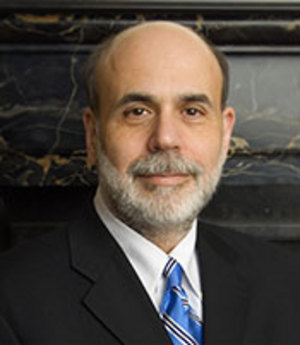| Home | About | Archives | RSS Feed |

The Independent Investor: Sour Grapes
 As the G20 conference gets under way today in Korea, I expect the currency war will escalate now that the U.S. Federal Reserve has launched the second round of quantitative easing. As the dollar continues to decline, our trading partners are getting back a little of their own and they don't like it.
As the G20 conference gets under way today in Korea, I expect the currency war will escalate now that the U.S. Federal Reserve has launched the second round of quantitative easing. As the dollar continues to decline, our trading partners are getting back a little of their own and they don't like it.
Over the last week or so, the Fed's QE II announcement has been greeted by a chorus of howls from all over the world. Germany's finance minister called U.S. policies "clueless" while Chinese officials quickly added their own criticism.
"As long as the world exercises no restraint in issuing global currencies such as the dollar, then the occurrence of another crisis is inevitable," stated Xia Bin, an adviser to China's central bank.
Brazil's finance minster, Guido Mantega, went further when he said, "Everybody wants the U.S. economy to recover, but it does no good at all to just throw dollars from a helicopter."
Those are just a few choice criticisms but there were many more from nations throughout the world accusing the U.S. of everything from currency manipulation to exporting inflation. They may be right but that doesn't mean we are wrong.
For decades, the U.S. has been running a major trade deficit with our international trading partners. All these countries that are squawking about QE II have been major beneficiaries of a monumental trading imbalance with the U.S. both now and in the past. In Latin America, for example, Brazil, among others, has benefited mightily by keeping its own currency artificially low and exporting huge quantities to the U.S. China is another master of currency manipulation and has followed a weak currency/high export policy for years. Germany is also enjoying booming exports, trade surpluses, low debt and an unemployment is expected to fall to 1990s levels thanks to a weak euro.
So after carrying the weight of the rest of the world's exports for years, the U.S. is fighting back and well it should. It is our nation and not any of the above countries, which is suffering a high unemployment rate, a slow growth recovery, huge trade deficits and a record debt load. We are simply following the same prescription both Japan and Europe followed after WWII, which Latin America followed after their Lost Decade of the 1980s. China's economic miracle is founded and continues to grow along these same economic principles.
Now that America has decided to play the same game, cries of "foul" echo across the world. It is true that America's actions will cause problems for economies around the world. Right now it makes a lot of economic sense for foreigners to borrow in dollars where interest rates are at rock bottom and then invest that money in building plants and equipment back home where interest rates and local currencies are higher. Of course, their governments already hold huge dollar reserves in the form of U.S. Treasury bonds. Foreign central banks fear that all this additional dollar borrowing may cause inflation in their own countries.
You might ask how critics can take the moral high ground and point a finger when for years they have been doing the same thing to us and acting as if America was their own private export market. Nations, however, are not individuals; which brings to mind a quote of Thomas Jefferson, one of our founding fathers:
"Money, not morality, is the principle commerce of civilized nations."
Bill Schmick is an independent investor with Berkshire Money Management. (See "About" for more information.) None of the information presented in any of these articles is intended to be and should not be construed as an endorsement of BMM or a solicitation to become a client of BMM. The reader should not assume that any strategies, or specific investments discussed are employed, bought, sold or held by BMM. Direct your inquiries to Bill at 1-888-232-6072 (toll free) or e-mail him at wschmick@fairpoint.net. Visit www.afewdollarsmore.com for more of Bill's insights.
| Tags: currency, trade, deficit, G20 |
@theMarket: Markets Are Going Higher
|
Fed Chairman Ben Bernanke's putting his faith in the market. |
The above headline may be a bold statement, especially when the averages are already at levels that surpass this year's stock-market highs. But the actions and words of the Federal Reserve Bank this week convinces me that stocks have substantial upside ahead of them.
As I predicted, this week was a big one for investors and the country. The mid-term election results and the resulting legislative gridlock in Washington most pundits expect leaves the Fed as our only hope in reviving the economy and reducing unemployment. (see yesterday's column "Don't Fight the Fed.")
The $600 billion in additional quantitative easing (QE II) and Chairman Ben Bernanke's Op-Ed piece in the Washington Post makes obvious that not only is the Fed targeting stronger growth in the economy but also higher prices in the stock market.
It is the first time in my career that a Fed chairman has explicitly targeted stocks as a tool to increase consumer spending, grow the economy and reduce unemployment.
Imagine my surprise when a day later, the central bank of Japan stated the very same thing but went a step further by also targeting real estate prices in its country.
This takes government support of the economy to an entirely new level in my opinion. During the financial crisis and its aftermath, the government (the Fed, U.S. Treasury and both the Bush and Obama administrations) has on several occasions provided a back stop to the markets. They took actions to save corporations, provided support for declining securities such as mortgage-backed securities, even money markets, and promised to support or bail out the U.S. financial markets with all the power at their disposal. It was one of the main reasons back in early 2009 that I turned bullish on the stock markets. I was betting on the government because they have much deeper pockets then the private sector and if they failed to fulfill their promise we were all doomed anyway.
This week's comments from Bernanke have taken that implicit promise of "support" a big step further. If I read this right, Bernanke is saying that consumers and corporations are still worried about the economy and their own finances. Higher stocks, according to Bernanke, will restore confidence as Americans see their savings rebound. That confidence could lead to additional spending, which would mean more growth in the economy and ultimately lower unemployment. Therefore, insuring that stock prices go higher would accomplish the Fed's mandate of lower unemployment.
Now that does not mean the Fed is simply going to jack up the market in one big melt-up. There will still be corrections. The market is overdue for one right now but over the longer term, at least the next few quarters, I think the fix is in. So if you have been sitting in Treasury bonds or cash waiting for the inevitable second collapse in stocks you may have to wait several more years. In the meantime, you could miss out on a substantial rally in equities.
I also think that we will finally see a dip in the unemployment rate over the next few months. The stimulus money that was spent during the run-up to the elections has generated additional jobs and those jobs are beginning to show up in the data. In addition, I expect U.S. productivity will begin to falter as the economy perks up. So from where I sit, the next few quarters look pretty good for the stock market.
Bill Schmick is an independent investor with Berkshire Money Management. (See "About" for more information.) None of the information presented in any of these articles is intended to be and should not be construed as an endorsement of BMM or a solicitation to become a client of BMM. The reader should not assume that any strategies, or specific investments discussed are employed, bought, sold or held by BMM. Direct your inquiries to Bill at 1-888-232-6072 (toll free) or e-mail him at wschmick@fairpoint.net. Visit www.afewdollarsmore.com for more of Bill's insights.
| Tags: Bernanke, Federal Reserve, stock market |
The Independent Investor: Don't Fight the Fed
 Now that QE II is in the bag, expect QE III, QE IV and maybe even a QE V, if that's what it takes to restore economic growth and reduce the unemployment rate to under 7 percent in this country. After the mid-term election results, I believe the Federal Reserve is all that stands between us and a stagnant, deflationary economy. I would not bet against them in this endeavor.
Now that QE II is in the bag, expect QE III, QE IV and maybe even a QE V, if that's what it takes to restore economic growth and reduce the unemployment rate to under 7 percent in this country. After the mid-term election results, I believe the Federal Reserve is all that stands between us and a stagnant, deflationary economy. I would not bet against them in this endeavor.
Most of Wall Street is expecting fiscal gridlock in Washington now that the GOP has re-taken the House but is still the minority in the Senate. That will mean little if any new initiatives to either grow the economy or drive down unemployment have much chance of passing. One exception may be a compromise on the Bush tax cuts.
If both sides can muster enough cooperation to cut a deal in extending the tax cuts before the end of the year (when they are set to expire) then we may escape an economic knockout punch of monumental proportions. Outside of that, there is not much that we should expect from the government over the next two years.
That means that only the Federal Reserve Bank, led by Chairman Ben Bernanke and his band of 12 governors, are left to wage the good fight against the forces arrayed against our economy. Their mandate, to promote low, stable inflation and a high level of employment, gives them enough latitude to do just about whatever they feel necessary to jump start the economy. It appears they are doing just that.
QE II not only says the Fed is serious about that mission but signals an intention, in my opinion, that if this one doesn't work, another one will already be in the pipeline, followed by another, and another. That is entirely believable since the Fed can and will continue to print money (U.S. dollars) until the cows come home in an effort to grow the economy, which is the only way they can reduce unemployment.
In an Op-Ed piece in the Washington Post on Thursday, Bernanke defended the Fed's second quantitative easing and stated several things that you should read as Gospel:
"... the heavy costs of unemployment include intense strains on family finances, more foreclosures and loss of job skills."
"... inflation is running somewhat below 2 percent."
"... higher stock prices will boost consumer wealth and help increase confidence, which can also spur spending.”
"... Increased spending will lead to higher incomes and profits that, in a virtuous circle, will further support economic expansion."
Bernanke said next to nothing about the dollar since he did not want to give the impression that the U.S. was deliberately driving the dollar lower (although that is exactly what QE II will do). If you don't believe that just take a peek at the decline in the greenback lately. As I have said in the past, the dollar will continue to weaken as the Fed prints more and more money. A lower dollar will boost commodity prices such as gold, silver, energy, materials and agricultural food items. So ignore the naysayers who say commodity prices have run their course.
As far as the Fed is concerned, pumping more money into the economy is OK, at least for now, since the inflation rate is "a bit lower than the rate most Fed policymakers see as being consistent with healthy economic growth in the long run."
But the most important message investors should take away from his Op-Ed is his extraordinary comment concerning higher stock prices. Evidently the Fed believes higher stock prices should be part and parcel of its attempt to grow the economy. The reasoning makes sense when you consider that consumers are the linchpin of this economy. Given that our two main pillars of wealth, our tax-differed retirement savings and our homes, have taken a huge hit since 2008, any improvement in one or both of these assets should help improve our confidence and therefore our spending. That message is clear in the bullet points above.
The Fed is clearly telegraphing to investors that they want a higher stock market, and like unemployment and the economy, they will do what it takes to accomplish that goal. This message is behind the jump in the stock market this week. My advice to you is don't fight the Fed. Buy stocks.
Bill Schmick is an independent investor with Berkshire Money Management. (See "About" for more information.) None of the information presented in any of these articles is intended to be and should not be construed as an endorsement of BMM or a solicitation to become a client of BMM. The reader should not assume that any strategies, or specific investments discussed are employed, bought, sold or held by BMM. Direct your inquiries to Bill at 1-888-232-6072 (toll free) or e-mail him at wschmick@fairpoint.net. Visit www.afewdollarsmore.com for more of Bill's insights.
| Tags: Federal Reserve, Bernanke, economy, stocks |
@theMarket: Marking Time
This coming week will be a humdinger for the markets. The Federal Reserve is expected to begin a second round of quantitative easing and voters will deliver their verdict on the economy in mid-term elections. Both events will have ramifications for investors and stock markets worldwide.
The Fed's decision to further stimulate the economy via a second round of quantitative easing (QE II) has already been priced into the market, in my opinion, but the impact of the mid-term elections has not. If the Republicans gain a majority in the House and additional seats in the Senate, as many political pundits predict, then the markets have reason to rally in the months, if not weeks ahead.
For me, the question is when, not if, the markets will gain more ground. Stocks (and some commodities) are somewhat overbought right now and looking for an excuse to pull back. Maybe the election results will precipitate a "sell-on-the-news" reaction in the very short term. The question I ask is whether the lame-duck Congress will give investors an added excuse to sell?
Most readers are aware that the Bush tax cuts are scheduled to expire in 2010. Will Congress act to extend those cuts before the end of the year? If it does (by extending the tax cuts for many, if not all, Americans), then the markets could see substantial gains. On the other hand, if nothing is done and the tax cuts are allowed to expire than we may be in for a period of uncertainty.
Since I have been attending Charles Schwab's yearly investor conference in Boston this week, it was a good opportunity to take the pulse of the best and brightest on Wall Street as they shared their views of the market and economy. Clearly, just about everyone I talked to is bullish. Not once did I hear the term "double-dip recession," and for the most part, just about everyone was looking for strong markets between now and at least the second quarter of 2011.
In addition, no one likes bonds, especially U.S. Treasury bonds. "Bubble" was the term most often used when describing the $70 trillion investors have stashed away in the bond market. Most argue that the perceived safety that investors see in bonds is an illusion. The investment team from Gameco Investors Inc. headed by famed value investor Mario Gabelli argued that bonds are "in the ninth inning of a 30-year run" providing holders with little yield, no growth prospects and a mountain of interest rate risk. In addition, "Money markets are also not as safe as you think," said Gabelli.
He points out that the $2.8 trillion in money-market funds has a great deal of dollar risk in the form of depreciation, inflation and debasement, besides offering little in the way of yield or growth.
Currency wars was also a leading topic of discussion with most participants believing the battle between nations to keep their currencies weak will continue. The prognosis for the greenback is more weakness ahead as America attempts to export its way to greater growth. As a result, U.S. companies that export are in vogue, especially technology stocks.
Gold, precious metals and commodities in general was an area of heated arguments, with some dismissing the recent run ups as irresponsible speculation while others read the price moves as a rationale answer to declining currencies and the inevitable rise in inflation that lurks just around the corner.
Emerging markets are once again in favor as an area for long-term investment. Bulls point to the increasing percentage of global GDP (49 percent) represented by these fast-growing economies as opposed to what they consider is an underrepresented share of the world's stock market capitalization (only 31 percent).
In the minus column, financial stocks stood out as an area that won't regain its pre-2008 luster anytime soon, neither will consumer discretionary stocks. In both cases, these sectors suffer from the deleveraging that is under way among American consumers. Banks, whose major business is making loans to customers, will experience low growth since Americans are trying to reduce, not increase, their debt as a percentage of their personal income. Consumers are reducing that debt by cutting back on their discretionary spending.
All in all the tone was upbeat at the conference and it felt that business was beginning to get back to normal after several years of strife. Whether that is a good thing when discussing the financial services sector is a matter of opinion.
Bill Schmick is an independent investor with Berkshire Money Management. (See "About" for more information.) None of the information presented in any of these articles is intended to be and should not be construed as an endorsement of BMM or a solicitation to become a client of BMM. The reader should not assume that any strategies, or specific investments discussed are employed, bought, sold or held by BMM. Direct your inquiries to Bill at 1-888-232-6072 (toll free) or e-mail him at wschmick@fairpoint.net. Visit www.afewdollarsmore.com for more of Bill's insights.
| Tags: recession, currency, bonds, forecast |
The Independent Investor: Retire Later Rather Than Earlier
 Over the last year, a number of baby boomers I know have explored the option of early retirement. Between the financial crises, the recession and the volatility of the stock markets, burnout has hit the over-60 crowd. They yearn for a less stressful life and believe that early retirement is the answer. My advice is don't do it.
Over the last year, a number of baby boomers I know have explored the option of early retirement. Between the financial crises, the recession and the volatility of the stock markets, burnout has hit the over-60 crowd. They yearn for a less stressful life and believe that early retirement is the answer. My advice is don't do it.
The first factor to consider is whether you can afford to retire. The last two years have put a large dent in most tax-deferred savings plans. Some of that damage has been repaired, but by no means all, with most savers still down 20-25 percent from the peak value of their portfolios. All indications are that it will take several more years before the value of our investible assets fully recover.
"I still have my Social Security to fall back on," argued a 62-year-old engineer from a large Berkshire company, headquartered in the center of the county.
"Yes," I said, "but if you wait another eight years, you could pull in a heck of a lot more."
It is true that retired workers can begin collecting Social Security benefits at 62. But your benefits are reduced by as much as 30 percent if you do. Those born between 1943 and 1954 receive full benefits at age 66. The full retirement age increases gradually after that and for those born after 1960 the retirement age is now 67.
Take me for example: I'm 61, born in 1948, and plan to retire sometime after 70. Why?
Well, I could tell you I love my job, (which is true) and that I also love to write. Beyond that, it does not make any economic sense for me to retire before that. For every year I postpone retirement my Social Security benefits increase by 8 percent. A 32 percent increase in benefits over four years is not pocket change.
I also plan to continue working after I start claiming my benefits. Let's say Joe planned to retire next year, at 62. He can earn up to $14,160 without paying a penalty. Any more than that, however, and Social Security deducts 50 cents on every dollar from his benefits. If Joe waits until his retirement age of 66, his earnings limit climbs to $37,680 and the penalty for earning over that is reduced to 33 cents on the dollar. If Joe were to wait just one year longer, there would be no limit or penalty at all.
Since Social Security benefits are calculated based on your 35 highest years of earnings, and many of us are in our highest earnings years right now. It pays us to continue to earn more and bump up our earnings as much as we can.
There are also advantages if you are married. Spouses are entitled to Social Security payments of up to 50 percent of the higher earner's check provided they wait until full retirement age. Since it's still a man's world, I have made more than my wife throughout our working careers. Since we both work, we can claim spousal payments and individual payments and do so at different times.
My wife Barbara is 10 years younger than me. So let's says I retire at 70 percent. She can then claim a spousal payment of 50 percent at that time and then switch to payments based on her own work record a decade later. Those payments will be much higher because she chose to delay her own retirement until she was 70.
Today's boomers are in better shape, have less physically demanding jobs and higher salaries than any preceding generation before them. By working longer, we oldsters increase the productivity of the American economy, provide the workplace with leadership and creativity and reduce the burden of Social Security deficits and the high cost of Medicare on younger generations. Putting off retirement as long as you can makes a great deal of sense both individually and for the country overall. Who knows, you may live longer as well.
| Tags: retirement |


